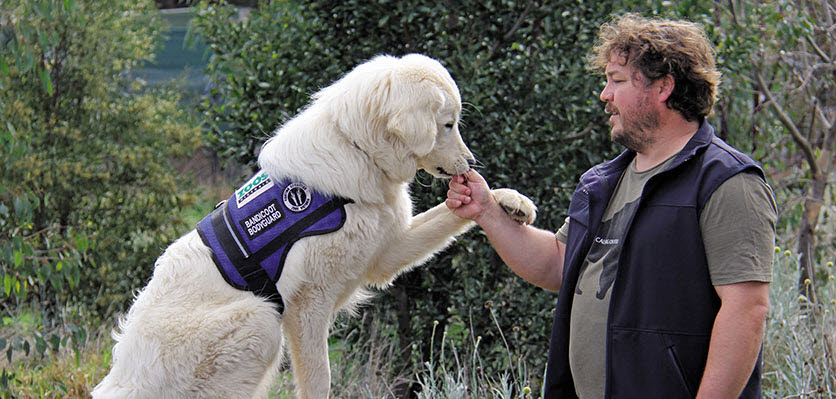
Livestock guardian dogs (LGDs) have a long history of protecting domestic animals from predators and thieves.
The use of LGDs has been traced back to the time of the Roman Empire, but the practice likely started much earlier than that. The majority of LGD breeds originated in Europe and Asia, and their use has spread to most continents of the world.
These dogs can be effective in protecting many types of livestock from many different types of predators, including in Australia. In a survey of 150 Australian livestock producers with LGDs, 96% of the respondents reported that predation on livestock had either ceased or decreased significantly after the dogs started working. For many producers, LGDs make the difference between being eaten out of business by predators and running a profitable livestock enterprise.
LGDs can protect more than just livestock. On Middle Island, in Warrnambool, Victoria, two Maremma sheepdogs are successfully protecting a colony of little penguins from fox predation. Since the Maremmas started working in 2006, the colony slowly increased from only 10 penguins to over 180 in 2013.
To investigate if these dogs can also protect other native species from fox and cat predation, eight Maremma sheepdogs are now in training to protect eastern barred bandicoots, which were widespread in Tasmania and western Victoria. They still occur in Tasmania, but they are now listed as extinct on mainland Australia. It is thought that habitat loss and predation by foxes and cats are the main contributors to their decline on the mainland. Bandicoots have been released successfully into predator-free enclosures at several sites in Victoria, where they are thriving. However, for this species to become re-established in the wild outside of predator-proof fences, fox and cat predation on the bandicoots needs to be managed. The Maremma sheepdogs are in training to achieve just that. Once the bandicoots are re-introduced in the wild, the dogs will be there to keep them safe from predation.
As part of their training, the Maremmas are gradually introduced to bandicoots and other native species, but they are mainly raised with sheep. At the re-introduction sites, the dogs will have a small number of sheep to protect in addition to the bandicoots. Maremmas are very social dogs and the sheep will provide them with social interaction. Bandicoots are shy, solitary and hide for a large part of the day, which could make it difficult for the Maremmas to associate with them. As the bandicoots and the sheep inhabit the same area, they will both be protected by the Maremmas. The first two pairs of dogs are scheduled to start work at re-introduction sites at the end of 2017.
If the trial is successful, it could result in the use of LGDs for the protection of a range of other threatened native Australian species. This could greatly benefit biodiversity and could be a big stride forward in returning locally extinct species to their former ranges without the use of predator-proof fences.
This article first appeared in the Australian Veterinary Conservation Biology newsletter Wildside, Spring 2017
